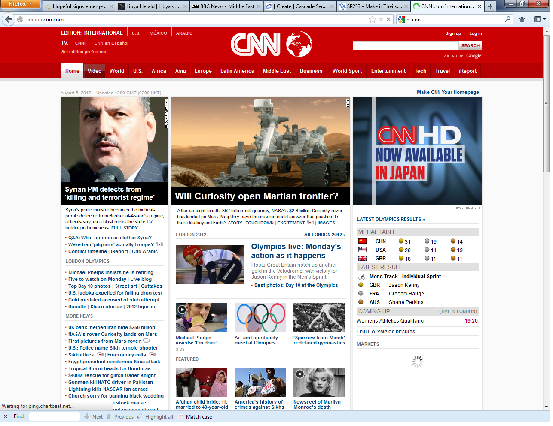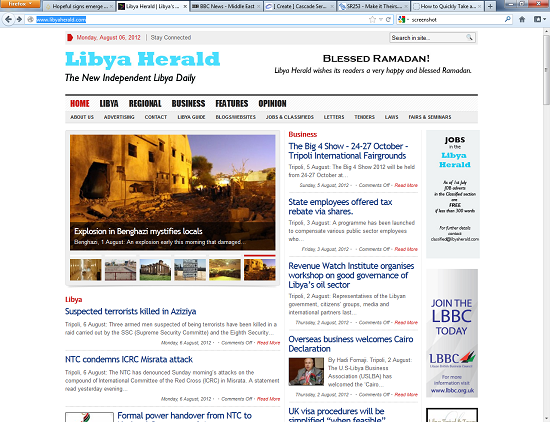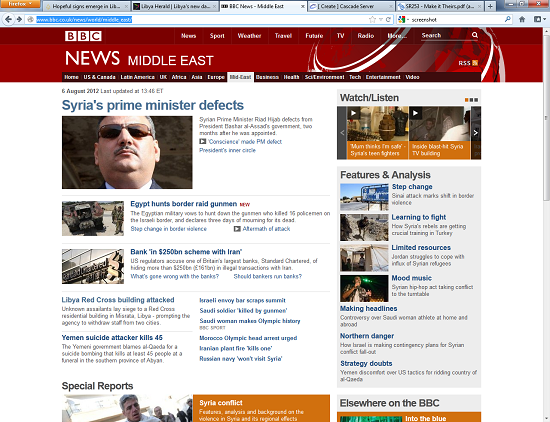The Challenges of Armchair Research

To try to ensure my research is relevant, I’ve been following news about Libya as closely as I can. However, using international media reports has proved problematic. When armed conflict between Libyan rebels and Quaddafi’s forces ended, international media coverage of Libya declined. Now, Libya is featured in the news when something dramatic happens (elections, bombings, kidnapped foreigners, etc.) or when a news outlet decides to do in-depth “feature” style pieces (like NPR’s Revolutionary Road Trip series from earlier this summer). These kinds of coverage are interesting, and can provide useful and insightful information, but they are disjointed points of information. They don’t provide information on everyday life, or the working environment in a way that allows me to track the changing context.
Additionally, much of what’s reported in the international media doesn’t exactly match what I’ve been told by people who work in Libya. As one woman I spoke to described it, the international media seems to have a few chosen narratives about Libya that are rehashed over and over – tribal conflict, Islamic extremism and lack of control from the government were the themes she mentioned. It’s not that the facts being reported are wrong, but it’s just that, overall they create a distorted picture of the environment in Libya.
The frustration I’ve heard from people working in Libya was closely echoed in an Al-Jazeera article published over the weekend. Najla Abdurrahman, an activist, author and fellow at Columbia writes:
“much of the commentary out there suffers from a highly selective narration of Libya's post-revolutionary experience, one that takes pockets of very real problems and amplifies these to give the skewed perception that they represent the whole - or even most of - the picture throughout the country. The reality is that most of Libya, which lacks an effective state military or police presence, is remarkably calm and stable given its present circumstances."
Contrast the impression given by the front page of the Libya Herald,
with that of the BBC’s Middle East page (Libya isn’t mentioned on the main international news page).
The BBC has one article about Libya covering the recent bombing of an International Red Cross Building in Misrata. The Herald also covers the bombing as well as other incidences of violence, but much of the front page news is much less dramatic - a tax break for state employees, a workshop on good governance for the oil sector and the power hand-over from the National Transitional Council to the newly elected National Conference.
The problem isn't specific to Libya. It’s a recurring theme you hear in the media itself - news outlets (in most cases) doing their best with limited resources and space to report, and news audiences with limited time, interest and capacity for new information. I don’t know what the solution is, I can only say what I’ve done. Over the summer, I’ve increasingly turned to sources like the Libya Herald, blogs and conversations with people who are, or have recently been in Libya. And that’s been fine for me – actually better than using international news since I’m reading news written and edited by Libyans. It would be arguably irresponsible for me not to use these sources. But most people don’t have the time to follow the news from Libya this closely, and no one has time to monitor news from around the world. Unfortunately, for now, most people will probably be left with a skewed picture of Libya.

